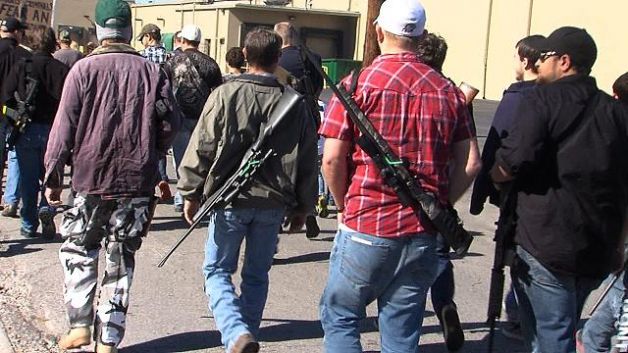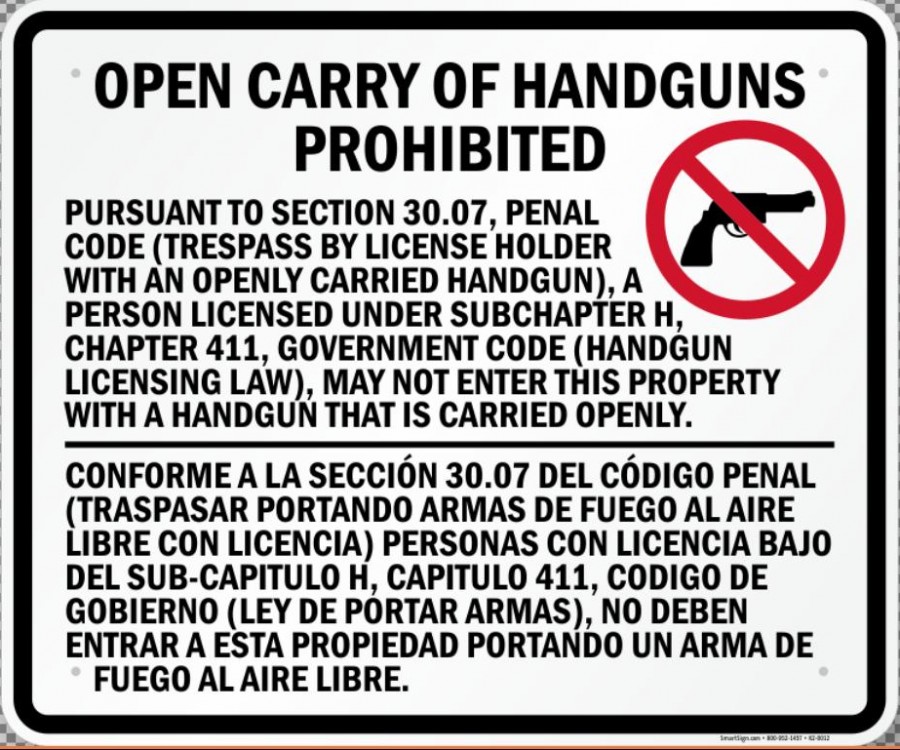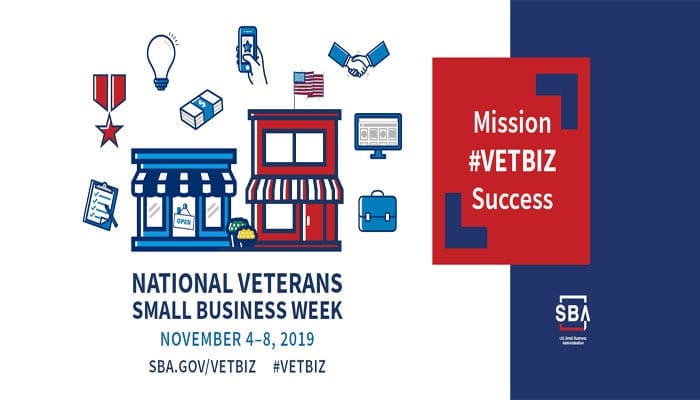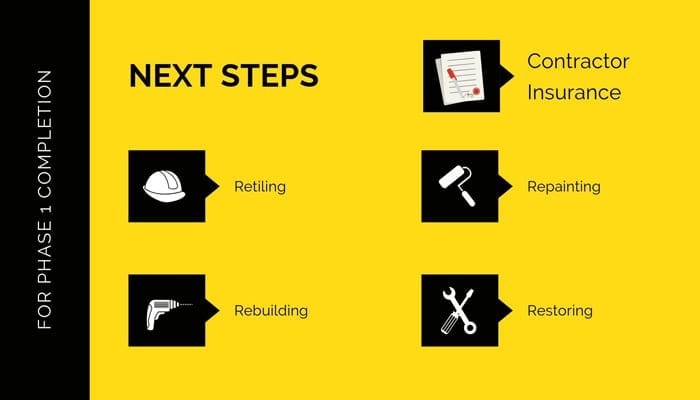
Open carry legislation went into effect in Texas on January 1, 2016. This means that ordinary citizens with an existing concealed handgun license, can openly carry their firearms in public. There are several exceptions, including college campuses, federal and state owned land and in businesses that overtly prohibit open carry. While Texas is by no means the first state to allow open carry, it’s the biggest! And Texans are well known for prizing their guns.

Private businesses can choose not to participate. But they are required by law to post a 30.05 sign to forbid long guns, a 30.06 sign to prohibit concealed carry and a 30.07 sign to ban open carry for patrons. Business owners must post all three signs if they want to entirely prohibit firearms on their premises. To ban employees, a sign can be posted or verbal communication can also sufficient.
Business owners can also choose to ban firearms for employees, but not for customers and vice versa. A place of business is also not just the office, but includes company vehicles and could affect your commercial auto policy.
While it’s too soon to tell how open carry will work out for Texas’ general population, it’s a huge boon to sign makers.
But will terrorists, mass shooters or even regular employees take advantage of the open carry law to hurt coworkers or patrons? And if they do, will the businesses they shoot up be liable?
Civil Liability in Allowing or Denying Open Carry
Civil liability is a common protection of insurance for businesses and one of the most common reasons to obtain commercial insurance. Getting sued by employees and customers can happen to any business, no matter how small.
But if your business allows open carry for either your customers, employees are both, are you more at risk of a liability in Texas?

Liability does exist in other states that allow open carry, Illinois is one such state. Here is how a scenario can play out without a liability clause:
“If a sign prohibiting guns is posted at the entrance of a building or business, a person brings in a gun anyway and an incident occurs, the building and/or business can be held liable. Patrons and employees could argue that they didn’t have the opportunity to protect themselves because they couldn’t carry their own gun. The reverse is also true. If the building or business owner allows guns and an incident occurs, they could be sued by employees and patrons because guns were allowed.” – ABC Chicago
A Texas law firm has evaluated the new law, which expanded the prior 2011 Texas concealed handgun law. Here were the findings:
“One significant omission from the Open Carry Law is that it does not grant employers immunity from civil actions resulting from an occurrence involving the employee and his or her openly carried firearm. The 2011 Texas concealed handgun law expressly included a provision providing employers with such immunity, except in cases of gross negligence. That immunity, however, applied only to firearms and ammunition stored or transported in an employee’s vehicle and does not address an occurrence involving an employee who is openly carrying a firearm in the office or workplace.”
How Commercial Insurance Policies Would Cover Damages in Texas
There are two important concepts that will be used throughout this section – immunity and coverage. As mentioned earlier, immunity can happen as a result of the Texas Concealed Handgun and Open Carry Law. In the current form, businesses are immune from accidents or intentional acts caused by customers.
If a customer walked into a convenience store and injured or killed another customer or employee, the business would be immune from liability regardless of open carry. Even if a business didn’t have general liability or worker’s compensation insurance, it could not be held liable for injury or death of a customer or employee caused by another customer.
Then there is the question of coverage which applies when there isn’t immunity, for Texas it’s most scenarios involving an employee.
- Accidental discharge of a weapon
- Intentional shooting by employee, goal is to injure or kill a perp/criminal or other employees
- Intentional shooting by employee with accidental death or injury (an innocent bystander is hurt in a gunfight)
The first scenario is covered in all major general liability policies. Yet the last two scenarios can be excluded from coverage if more than reasonable force is used. What is unreasonable? A convenience store clerk exercises their right to open carry when a shoplifter walks in. The clerk shoots the shoplifter in the leg, causing serious bodily injury. The business would be held liable for this scenario and wouldn’t receive coverage from a general liability policy regardless of the stance on open carry.
However, banning firearms is likely to deter employees from bringing them for protection, but it wouldn’t deter employees intentionally willing to cause harm. Although Texas doesn’t require worker’s compensation insurance, it would be necessary in order to pay for the health and legal expenses of your employees if injured or killed in a gunfight by another employee. It would also pay for lost wages to victims or families.
In summary, businesses aren’t immune from scenarios caused by concealed or openly carried guns by employees. Regardless of whether you ban or allow open carry for employees, purchase adequate worker’s compensation insurance and general liability insurance.
Terrorism Insurance
A gunfight erupts that causes bodily injury and property damage over $5 million, and is later determined by the U.S. Treasury to be an act of terrorism (such as ISIS ordered the act to take place).
Under this scenario, terrorism insurance would be required to cover the damages caused in the aftermath. Your general liability policy, worker’s compensation and any other commercial property policy would not cover damages.
Business as Usual?
Realize that studies have never proven open carry to cause more attacks. The recent attack in San Bernardino, CA was not a result of open carry law, but a mentally ill and radicalized couple. Advocates of open carry law hold that “guns do not kill people; people kill people”.
Depending on your business, number of employees and daily customer traffic, allowing open carry can cause future legal and insurance implications. Educate yourself and employees, taking steps to properly ban or allow open carry.
Open Carry is Your Personal Choice
One BBQ joint in Texas is going so far as offering a 10% discount for patrons that openly carry weapons. Allowing open carry or banning the open/concealed carry of firearms ultimately comes down to your personal preferences and those of your customers.




